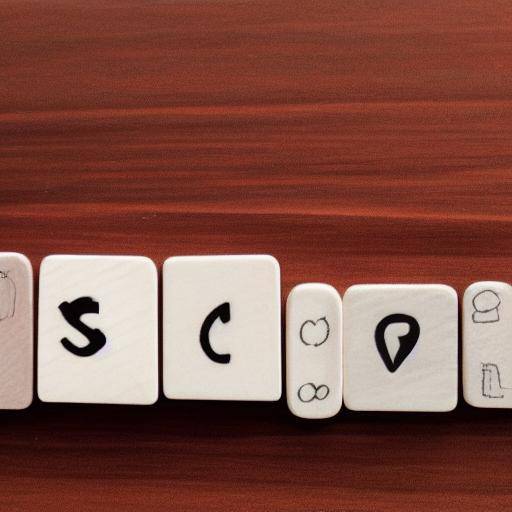
Self-reflection is a fundamental aspect in personal development and overcoming obstacles. Continuous self-evaluation can be the key to identifying and eliminating negative habits that hinder our growth. In this article, we will explore the importance of continuous self-assessment for personal development, how it can help identify and eliminate negative habits, and practical advice to implement it in everyday life.
Introduction: The Relevance of Continuous Self-Assessment
Continuous self-evaluation is a process of personal reflection that allows us to constantly examine our actions, behaviors and thoughts. This process is crucial for personal growth, as it gives us the opportunity to identify areas of improvement, strengths and weaknesses. By recognizing and understanding our negative habits, we can take steps to eliminate them and foster more positive and constructive habits.
In this article, we will explore how continuing self-assessment can positively impact our daily lives, particularly the elimination of negative habits. We will learn about its benefits, challenges, and how it can contribute to integral personal development. In addition, we will provide precise examples and practical advice to effectively implement continuous self-assessment.
History and Background of Continuous Self-Assessment
Continuous self-evaluation has deep roots in ancient philosophy. From Greek philosophers to the teachings of Eastern traditions, personal reflection has been regarded as an essential component of growth and self-discovery. The concept has evolved over time, integrating into various disciplines such as psychology, pedagogy and personal coaching.
The first documented references to continuous self-assessment date back to ancient Egyptian and Chinese civilizations, where personal reflection and introspection were considered to be fundamental practices for spiritual and moral development. Over time, this notion has influenced different philosophical and psychological currents, highlighting their importance in the process of self-realization and personal overcoming.
Deep Analysis: Benefits and Challenges
The ongoing self-assessment process offers a number of significant benefits, from identifying negative habits to promoting authenticity and self-awareness. However, it can also present challenges, such as resistance to change and confrontation of uncomfortable aspects of our personality. It is crucial to understand both the benefits and the challenges to fully embrace this process.
Various studies and analysis support the effectiveness of continuous self-assessment in personal development. According to recent research, people who commit to self-assessment continue to experience greater emotional well-being, are more able to overcome obstacles and show greater resilience to stress. This practice also promotes self-reflection, leading to greater self-control and more conscious decision-making.
Comprehensive Review: Applications and Best Practices
Continuous self-assessment is manifested in various forms in everyday life, from meditation and reflective writing to the active search for constructive feedback. In the workplace, periodic performance evaluations and 360-degree feedback also represent concrete ways of implementing this process. By incorporating these practices in a coherent manner, we can cultivate a greater awareness of ourselves and our actions.
In addition, it is essential to consider some best practices when embarking on continuous self-evaluation. Setting clear goals, maintaining a positive approach and seeking honest feedback are effective strategies to maximize the benefits of this process. Also, persistence and openness to constant self-reflection are essential qualities to advance on the path of continuous improvement.
Comparison Analysis: Continuous Self-Assessment, Negative Habits and Personal Development
Continuous self-evaluation is closely linked to the identification and elimination of negative habits. By observing our actions and thoughts constantly, we can identify harmful patterns and take steps to change them. In turn, this process has a direct impact on personal development, as it allows us to evolve and grow significantly.
A key aspect of continuous self-assessment is its ability to reveal negative habits rooted in our behavior. By critically analyzing our decisions and behaviors, we can identify patterns that could be hindering our progress. Once these habits become evident, we can work to replace them with more positive and constructive behaviors.
On the other hand, personal development is the result of a constant commitment to individual improvement. By fostering continuous self-assessment, we open ourselves to new opportunities for growth and transformation. By overcoming negative habits, we strengthen our self-esteem, develop a more resilient mentality and approach our maximum potential.
Practical Tips and Accessible Recommendations
Incorporating continuous self-assessment in daily life is a practice that requires commitment and discipline. To begin with, it is useful to establish a time designated for reflection, either at the end of the day or as part of a morning routine. This dedicated time allows us to examine our experiences, decisions and emotions, which fosters greater self-knowledge.
In addition, looking for feedback from reliable sources, such as mentors or close friends, can provide valuable insights into our habits and behaviors. Accepting this feedback in an open and constructive manner is fundamental to the process of continuous self-assessment.
Also, keeping a personal reflection journal can be a powerful tool to record our observations and discoveries during the continuous self-assessment process. This journal can serve as an invaluable resource to track our progress and detect patterns over time.
Industry Perspectives and Expert Reviews
The importance of continuing self-evaluation in the elimination of negative habits has gained recognition in diverse areas, including psychology, entrepreneurship and personal well-being. Experts in positive psychology, organizational development and personal coaching have highlighted the need to embrace self-assessment as an effective method for fostering growth and self-realization.
From a business perspective, continued self-evaluation has become a crucial tool for leadership development and performance management. Leaders who commit to personal reflection and self-reflection are able to identify their own areas of improvement, allowing them to lead more effectively and empathy.
Case Studies and Practical Applications
By observing real cases of individuals who have successfully integrated continuous self-assessment into their lives, we can gain a more complete understanding of their impact. For example, case studies in educational settings have shown that students adopting self-assessment practices tend to have greater academic performance and greater self-regulation of learning.
In the professional field, there have been documented cases of business leaders who have used continuous self-assessment to identify and address negative habits that might be interfering with their leadership capacity. These experiences provide concrete examples of how continuing self-assessment can catalyse growth and professional development.
Future Trends and Predictions
As awareness of the importance of self-evaluation continues to expand, this practice is expected to be increasingly integrated into educational, organizational and personal environments. With the advancement of technology, tools such as digital newspaper applications and real-time feedback platforms could further facilitate the implementation of continuous self-assessment, providing people with an accessible means of reflecting on their personal development.
In addition, research in positive psychology and personal development is expected to provide a greater focus on continuing self-assessment as an effective strategy to improve emotional resilience, overall well-being and performance in different areas of life. The integration of continuous self-evaluation into personal development and leadership programmes is also seen as a growing trend.
Conclusions and FAQs
Conclusion
In short, continuing self-evaluation plays a key role in identifying and eliminating negative habits, as well as in promoting comprehensive personal development. By committing ourselves to this process, we open the doors to greater self-knowledge, personal growth and emotional well-being. Continuous self-evaluation enables us to face challenges, overcome obstacles and achieve our maximum potential.
Frequently asked questions
**How can I start the process of continuous self-assessment in my daily life?**It begins by defining a specific moment for reflection, either at the end of the day or in the morning. Set clear goals and keep a reflection journal to record your observations.
**What are some effective ways of identifying negative habits through continuous self-assessment?**Finding repetitive patterns in your behavior and emotions, as well as receiving honest feedback from reliable sources, can help you identify negative habits.
**What is the relationship between continuous self-evaluation and personal development?**Continuous self-evaluation contributes significantly to personal development by allowing us to identify areas of improvement, promote authenticity and promote conscious decision-making.
**What are some common challenges in continuing self-assessment?**The resistance to change, the confrontation of uncomfortable aspects of our personality and excessive self-criticism are common challenges when embarking on continuous self-assessment.
**Can self-evaluation continue to have an impact on my work performance?**Yes, the practice of continuous self-assessment can improve your resilience, increase your decision-making capacity and strengthen your awareness of your strengths and weaknesses, which can positively impact your work performance.






















































